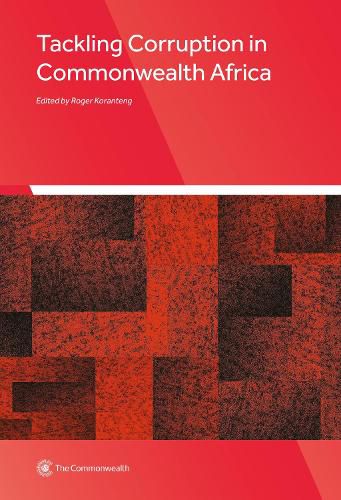Readings Newsletter
Become a Readings Member to make your shopping experience even easier.
Sign in or sign up for free!
You’re not far away from qualifying for FREE standard shipping within Australia
You’ve qualified for FREE standard shipping within Australia
The cart is loading…






The five countries featured in this book - Botswana, Lesotho, Mauritius, Rwanda and Seychelles - were selected because of their relatively strong scores on Transparency International’s Corruption Perceptions Index, or because they had registered a significant improvement in their scores over the previous decade. These countries, while continuing to experience challenges arising from corruption have made significant progress.
‘Tackling Corruption in Commonwealth Africa’ identifies the institutions in each country that have taken the lead in reducing the impact of corruption and accounts for the factors - both technical and political - that have enabled these institutions to implement successful anti-corruption strategies.
With the many examples of anti-corruption activities contained here, the research challenges the assumption that developing Global South economies are more corrupt than Western economies. Whether in the reform of legal and institutional frameworks, reports on prosecutions, or fraudulent cross-border activities the research throws up numerous examples of the international dimensions of corruption, particularly with respect to asset repatriation and money laundering.
$9.00 standard shipping within Australia
FREE standard shipping within Australia for orders over $100.00
Express & International shipping calculated at checkout
The five countries featured in this book - Botswana, Lesotho, Mauritius, Rwanda and Seychelles - were selected because of their relatively strong scores on Transparency International’s Corruption Perceptions Index, or because they had registered a significant improvement in their scores over the previous decade. These countries, while continuing to experience challenges arising from corruption have made significant progress.
‘Tackling Corruption in Commonwealth Africa’ identifies the institutions in each country that have taken the lead in reducing the impact of corruption and accounts for the factors - both technical and political - that have enabled these institutions to implement successful anti-corruption strategies.
With the many examples of anti-corruption activities contained here, the research challenges the assumption that developing Global South economies are more corrupt than Western economies. Whether in the reform of legal and institutional frameworks, reports on prosecutions, or fraudulent cross-border activities the research throws up numerous examples of the international dimensions of corruption, particularly with respect to asset repatriation and money laundering.